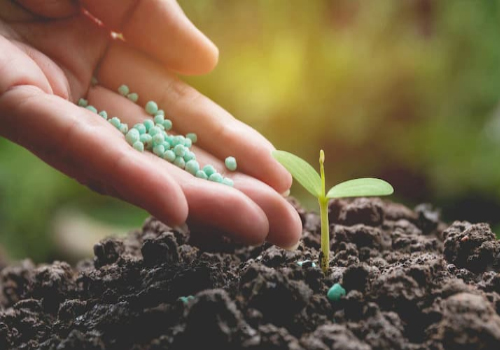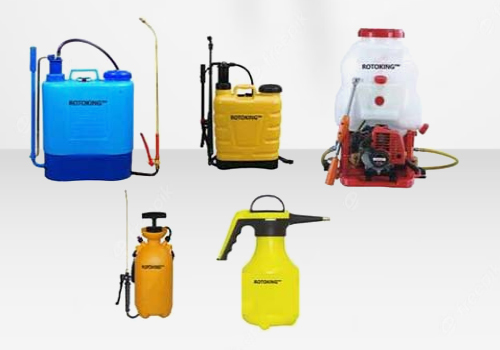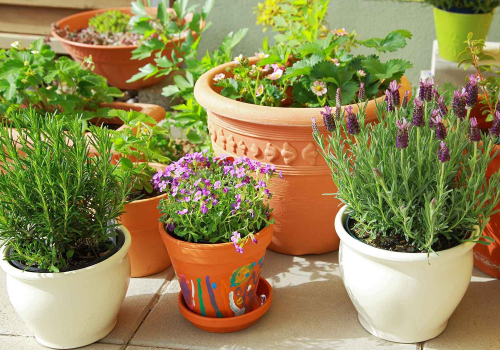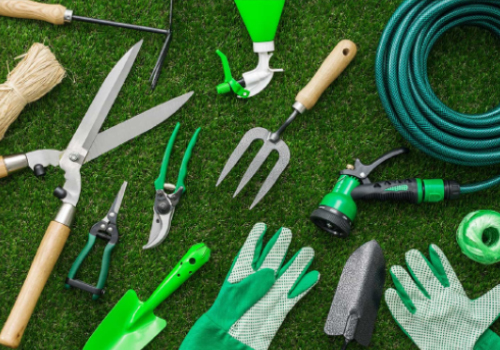
Pesticides
Pesticides are substances that are meant to control pests. This includes herbicide, insecticide, nematicide, molluscicide, piscicide, avicide, rodenticide, bactericide, insect repellent, animal repellent, microbicide, fungicide, and lampricide.
The most common of these are herbicides, which account for approximately 50% of all pesticide use globally.[4] Most pesticides are intended to serve as plant protection products (also known as crop protection products), which in general, protect plants from weeds, fungi, or insects. As an example, the fungus Alternaria solani is used to combat the aquatic weed Salvinia.
In general, a pesticide is a chemical (such as carbamate) or biological agent (such as a virus, bacterium, or fungus) that deters, incapacitates, kills, or otherwise discourages pests. Target pests can include insects, plant pathogens, weeds, molluscs, birds, mammals, fish, nematodes (roundworms), and microbes that destroy property, cause nuisance, or spread disease, or are disease vectors. Along with these benefits, pesticides also have drawbacks, such as potential toxicity to humans and other species.

Bio Fertilizers
A biofertilizer is a substance which contains living micro-organisms which, when applied to seeds, plant surfaces, or soil, colonize the rhizosphere or the interior of the plant and promotes growth by increasing the supply or availability of primary nutrients to the host plant.
Biofertilizers add nutrients through the natural processes of nitrogen fixation, solubilizing phosphorus, and stimulating plant growth through the synthesis of growth-promoting substances.
The micro-organisms in biofertilizers restore the soil's natural nutrient cycle and build soil organic matter. Through the use of biofertilizers, healthy plants can be grown, while enhancing the sustainability and the health of the soil. Biofertilizers can be expected to reduce the use of synthetic fertilizers and pesticides, but they are not yet able to replace their use. Since they play several roles, a preferred scientific term for such beneficial bacteria is "plant-growth promoting rhizobacteria" (PGPR).

Spray Pumps Division
Spray pumps are commonly used in pest control to apply insecticides and other chemicals to target pests. Pest control professionals often use specialized spray pumps designed for this specific purpose.
One common type of spray pump used in pest control is the backpack sprayer, which consists of a tank that is worn on the operator's back and a wand with a nozzle that is used to apply the insecticide or other chemical. Backpack sprayers are useful for treating large areas or hard-to-reach places.
Another type of spray pump used in pest control is the hand-held sprayer, which is a smaller and more portable option. Hand-held sprayers are typically used for spot treatments or in smaller areas.
When using spray pumps in pest control, it is important to follow all safety guidelines and wear appropriate personal protective equipment. The use of insecticides and other chemicals can be hazardous to humans and pets, so it is essential to use caution and follow all label instructions. Additionally, it is important to use the appropriate spray pump for the specific pest control application to ensure effective treatment.

Seeds
Seeds are the reproductive structures of plants that contain the genetic material needed for the growth and development of a new plant. Seeds are produced by flowering plants (angiosperms) and non-flowering plants (gymnosperms), and they come in a wide variety of sizes, shapes, and colors.
Seeds are typically composed of three parts: the embryo, which is the young plant that will grow from the seed; the endosperm, which is a food source for the developing embryo; and the seed coat, which is a protective layer that surrounds and protects the embryo and endosperm.
Seeds can be used for a variety of purposes, including growing new plants, as a food source for humans and animals, and as a source of oils, fibers, and other materials. There are many different types of seeds available, including vegetable seeds, flower seeds, fruit seeds, and tree seeds.
When selecting seeds for planting, it is important to choose seeds that are appropriate for the climate and growing conditions of your location, as well as seeds that are of good quality and free from disease. Proper planting techniques and care will also be important for the successful growth and development of the new plants.

Flower Pots
Flower pots, also known as plant pots or planters, are containers used for growing plants. They come in a variety of materials, sizes, shapes, and styles, and can be used both indoors and outdoors.
One of the most common materials used for flower pots is terracotta, which is a type of baked clay. Terracotta pots are relatively inexpensive, porous, and provide good drainage for plants. Other materials used for flower pots include plastic, metal, wood, and ceramic.
When choosing a flower pot, it is important to consider the size and type of plant that will be grown in it, as well as the growing conditions, such as the amount of sunlight and the humidity level. The pot should be large enough to accommodate the plant's root system and provide enough room for growth, and should also have adequate drainage holes to prevent waterlogging.
Some flower pots come with built-in saucers or trays to collect excess water, while others may require the use of a separate saucer or tray. It is important to monitor the soil moisture levels and water the plant appropriately, based on its specific needs and the growing conditions.
In addition to their functional purpose, flower pots can also be decorative and add aesthetic appeal to indoor and outdoor spaces. They come in a variety of colors, styles, and designs, and can be used to create attractive displays and arrangements of plants.

Gardening Equipment
Gardening equipment refers to the tools and devices used for various gardening tasks. Some common gardening equipment includes:
Hand Tools - These include tools such as shovels, trowels, pruners, and cultivators, which are used for digging, planting, weeding, and pruning.
Power Tools - These include tools such as lawn mowers, chainsaws, hedge trimmers, and leaf blowers, which are used for more heavy-duty tasks such as cutting, trimming, and shaping plants and trees.
Irrigation Equipments - This includes hoses, sprinklers, and watering cans used for watering plants.
Soil Testing Kits - These kits are used to test the pH levels and nutrient content of the soil to determine the appropriate fertilizers or amendments needed for optimal plant growth.
Protective Gear - This includes items such as gloves, safety glasses, and sunscreen, which protect the gardener from injury and exposure to the sun.
Garden Carts and Wheelbarrows - These are used for transporting heavy items such as soil, mulch, and plants.
Greenhouses and Cold Frames - These structures provide a controlled environment for growing plants in harsh weather conditions.
Composting Equipment - This includes compost bins, tumblers, and worms used for recycling organic materials into nutrient-rich soil.